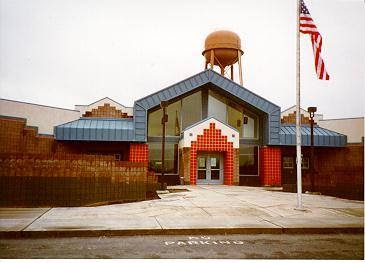
- Details
- By Native News Online Staff
FORT HALL, Idaho — The Shoshone-Bannock Tribes’ Tribal Office of Emergency Management reported on Tuesday 14 new COVID-19 cases on the Fort Hall Reservation, bringing the total to 84 overall positive cases since the pandemic started in early April.
Of the 84 cases, 29 are currently being monitored, 44 have recovered, two are currently hospitalized and there is one confirmed death. Test results are compiled and reported by the Fort Hall Indian Health Clinic and Community Health Center.
The Fort Hall Indian Health Clinic conducted 14 tests on Monday, and seven came back positive. Of the seven, three are Shoshone-Bannock on the reservation and the remaining four are American Indians living off the reservation.
On Tuesday, 32 tests were conducted and five came back positive. More results were due back on Tuesday evening.
HRSA also completed 25 tests on Saturday and five tests last Monday, receiving one positive result from Saturday and one positive from Monday. These numbers have been added to the total positive and monitored cases. To date, 395 tests have been completed by the Community Health Center and HRSA.
Last week, Fort Hall Clinic set a regional record by conducting 35 tests in one day for a single Abbott ID NOW machine. The machine is a rapid molecular COVID-19 testing machine that allows for fast diagnosis in less than 15 minutes.
The Fort Hall Clinic has testing capacity to conduct 20 to 25 tests per day with a quick turnaround time. In the region, the clinic has the fastest testing in comparison to the local health centers. The Clinic also announced hiring a new lab tech, a new physician’s assistant and a new licensed practical nurse. The clinic currently has 61 Abbott test kits left and is waiting on supplies to restock from the Portland Indian Health Service Area office.
Tribal health officials say tribal elders are being affected by direct contact with positive cases within their homes. TOEM stresses the younger generation to wear face masks when outside of their home and to wash their hands upon returning home.
When tribal citizens feel ill they should quarantine themselves from elderly family members and call Fort Hall Clinic at 208-238-5400 to speak with a health official to get tested.
According to tribal health officials, those contacted by a ‘contract tracer’ will be instructed to isolate and schedule a test immediately.
COVID-19 symptoms include a fever (temperature of 100.4 degrees Fahrenheit or higher), cough, shortness of breath, headache, muscle and body aches, sore throat, fatigue and extreme tiredness, GI symptoms (nausea, vomiting, diarrhea), and loss of taste and smell.
Each of the tribe’s health centers, including IHS, Tribal Health and HRSA have tribal contact tracers actively monitoring positive individuals. Due to the increase of positive cases, contract tracers are being hired at HRSA and Tribal Health.
More Stories Like This
Native News Weekly (August 25, 2024): D.C. BriefsCheyenne River Youth Project to Celebrate Women’s Strength at Barbie-Themed Passion for Fashion on March 14
Celebrating Native American Women
Native Bidaské: The Illusion of Freedom and the Myth of America 250, Leonard Peltier Speaks Out
Monday Morning (March 2, 2026): Articles You May Have Missed This Past Weekend
Help us defend tribal sovereignty.
At Native News Online, our mission is rooted in telling the stories that strengthen sovereignty and uplift Indigenous voices — not just at year’s end, but every single day.
Because of your generosity last year, we were able to keep our reporters on the ground in tribal communities, at national gatherings and in the halls of Congress — covering the issues that matter most to Indian Country: sovereignty, culture, education, health and economic opportunity.
That support sustained us through a tough year in 2025. Now, as we look to the year ahead, we need your help right now to ensure warrior journalism remains strong — reporting that defends tribal sovereignty, amplifies Native truth, and holds power accountable.
 The stakes couldn't be higher. Your support keeps Native voices heard, Native stories told and Native sovereignty defended.
The stakes couldn't be higher. Your support keeps Native voices heard, Native stories told and Native sovereignty defended.
Stand with Warrior Journalism today.
Levi Rickert (Potawatomi), Editor & Publisher

